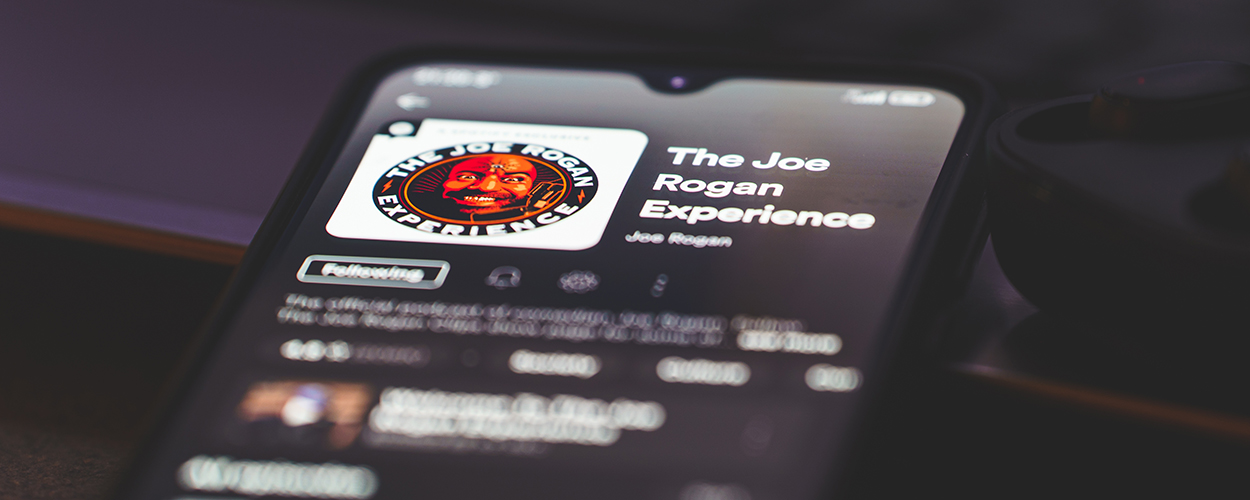This website uses cookies so that we can provide you with the best user experience possible. Cookie information is stored in your browser and performs functions such as recognising you when you return to our website and helping our team to understand which sections of the website you find most interesting and useful.
Business News CMU Digest
CMU Digest 06.02.22: Spotify, Warner Music, HitPiece NFTs, Lil Yachty, Lady A
By Chris Cooke | Published on Sunday 6 February 2022

The key stories from the last week in the music business…
The Neil Young instigated Spotify boycott continued to gain momentum, as more artists and creators hit out at COVID misinformation on the Joe Rogan podcast. Spotify boss Daniel Ek insisted that the company has solid content policies to deal with misinformation in podcasts uploaded to the platform, while also committing to sign-post COVID resources in line with the scientific consensus on any podcasts that discuss the pandemic. Rogan himself said he’d do more research so he can challenge controversial opinions on his Spotify exclusive podcast – and also ensure that controversial opinions are immediately balanced by the input of other experts. However, more artists, comedians and podcasters announced they were removing their content in protest as the week went by, and Spotify management came under pressure from employees at a company wide meeting, many of whom were unhappy that their employer was siding with Rogan in this dispute. In an investor call, Ek said it was too soon to say what extent the Rogan controversy was having on subscriber numbers. [READ MORE]
Warner Music announced that it would start paying royalties through to heritage artists who haven’t recouped on their original pre-2000 record deals. It follows the lead of Sony Music in this domain, although some indies have long written off unrecouped balances after a period of time, meaning artists receive royalties in their bank accounts, rather than that money paying off past advances and other recoupable costs incurred by the label. In its report on the economics of streaming last year, the UK Parliament’s culture select committee welcomed Sony’s then recent commitment to pay through royalties to unrecouped musicians and called on Warner and Universal Music to make a similar commitment. Sources say Universal will ultimately follow its rivals in making such payments. [READ MORE]
There was a major backlash against a music NFTs website called HitPiece which ultimately went offline. HitPiece was selling NFTs linked to music from a plethora of artists, but without the permission of those artists or their labels. The NFTs were not actually linked to any music files, but instead to the cover artwork of each featured track. However, that artwork is also protected by copyright and had not been licensed – instead it seemed the NFTs set up had pulled in all the imagery from Spotify – meaning the site is likely liable for lots of copyright infringement. Artists could also potentially take action on the basis their trademarks or publicity rights were being infringed. With lots of talk of litigation, the HitPiece site went offline. Though that didn’t stop lawyers from trade group the RIAA sending off a legal letter demanding to know more about the operation. [READ MORE]
Lil Yachty accused music NFTs platform Opulous of using his name in launch communications without permission. The rapper said that although he and his management team met with Opulous in May 2021, they never agreed to get involved in the venture, which allows investors and fans to financially support a new track in return for a share of future royalties, with the royalty right logged in an NFT on the blockchain. In a lawsuit filed against Opulous, Lil Yachty said that the NFTs company had “falsely represented” that he was endorsing and planned to work with the start-up business. The lawsuit specifically accused Opulous of trademark infringement and unfair competition, and of infringing the rapper’s privacy and publicity rights. The NFTs firm called those claims “meritless”, insisted all uses of Lil Yachty’s name in its past communications were approved, and said that it would “vigorously defend” itself in the legal battle. [READ MORE]
The Lady A trademark dispute was settled. A singer who performs as Lady A hit out at the band formally known as Lady Antebellum when they rebranded as Lady A in June 2020. Subsequent attempts to settle the then mounting dispute failed and Lady A the band went legal, arguing that, although they’d only just officially switched to the Lady A moniker, they already owned the trademark in the name, because it had long been used by their fans. Lady A the singer then countersued, insisting she had “accrued common law rights” in the name simply by using it for so long. The case was set to go to court in Tennessee, but last week both sides dismissed their respective lawsuits, confirming a settlement had been reached. [READ MORE]





